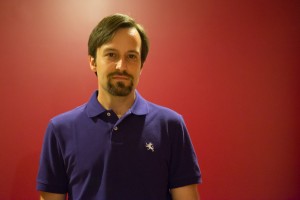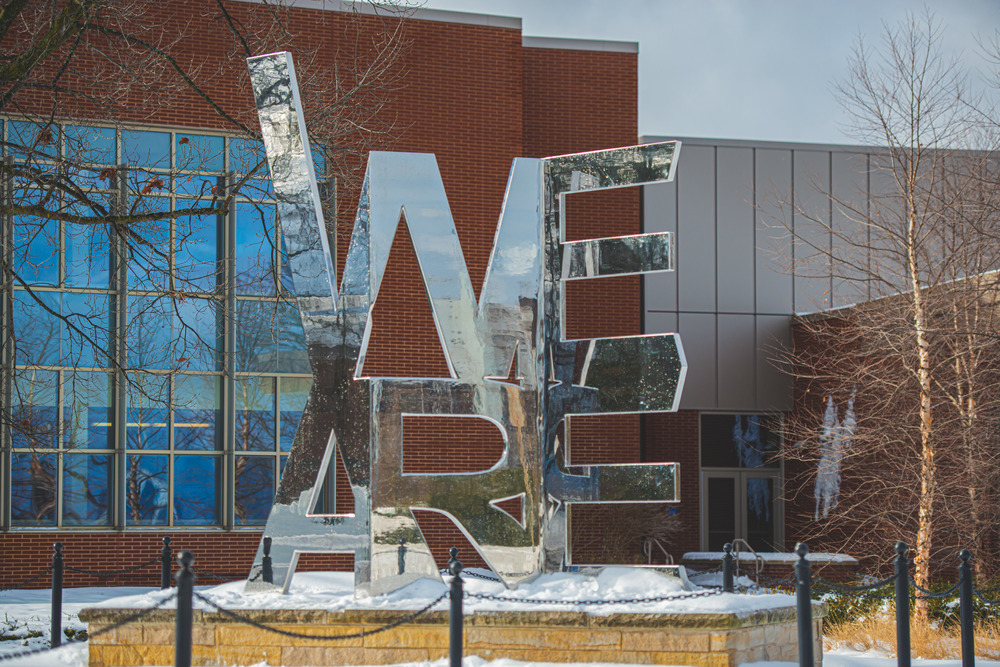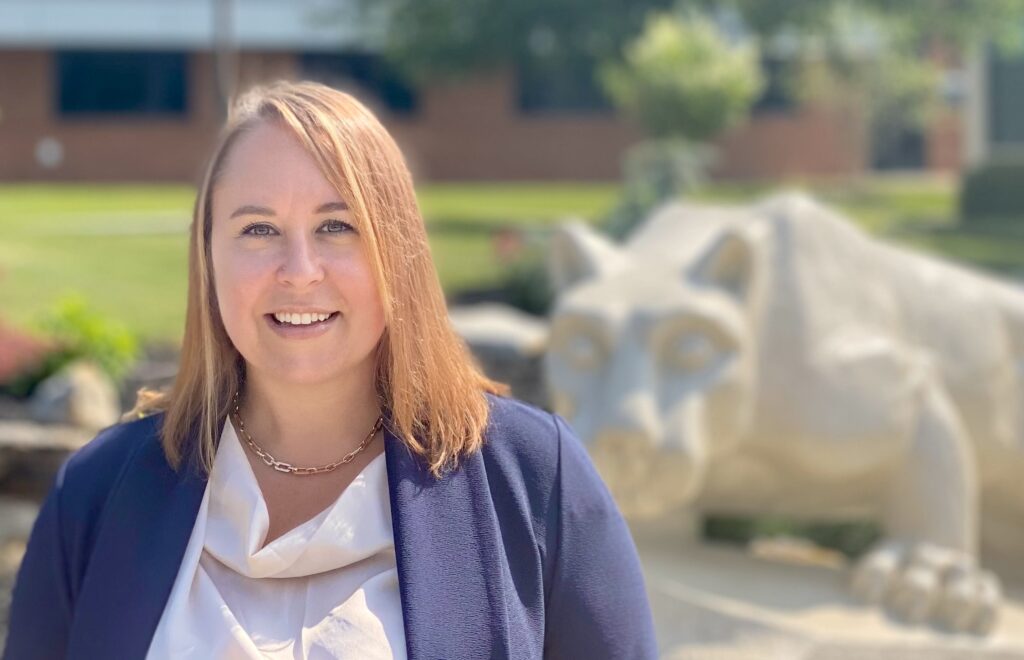Anthony Robinson is an assistant professor of geography and director of Online Geospatial Programs at Penn State. He leads Penn State’s postbaccalaureate GIS Certificate and Master of Geographic Information Systems programs in the John A. Dutton e-Education Institute. He also serves as an assistant director for the GeoVISTA Center in the Department of Geography. We chatted with Anthony about his teaching experiences in and outside of the classroom.
Please give our readers a sense of your teaching background and how you arrived at your current position at Penn State.

I came to geography by accident, like many of my colleagues. I was lucky enough to take a human geography course in my undergraduate days that set off a chain of events that led to my current work and position here at Penn State. I’ve always had a strong affinity for maps, and so I took on a focus in cartography, which led later on to research work in geographic visualization in my graduate studies at Penn State. My teaching in geography is focused on designing and evaluating geographic information systems. I want to know how we can make geographic information more useful and actionable for people.
What courses do you teach for Penn State World Campus?
I teach two courses for our Master of Geographic Information Systems (MGIS) program. The first is called Geospatial System Analysis and Design, and the second is called Planning GIS for Emergency Management. Both are graduate-level courses that focus on how we can design new geographic information systems and evaluate whether or not they work for real-world users.
Can you tell our readers some more about the John A. Dutton e-Education Institute?
The Dutton Institute is the learning design unit for the College of Earth and Mineral Sciences. Our group designs, develops, and teaches online programs for the academic departments in EMS. My specific role in the Dutton Institute is to serve as director of online geospatial education programs, which are offered by the Department of Geography and serve over a thousand adult learners every year.
Your current research focuses on designing and evaluating geovisualization tools. Could you explain what that means?
It’s very simple — I’m excited about testing new ways of interacting with maps. We have lots and lots of new and complicated geographic information sources, and I am keen to figure out how we can design tools that leverage that information to solve real problems.
It seems as if your work allows you to travel frequently. Could you tell us about the most interesting place you have traveled to and why?
I am very fortunate to be able to travel around the world for my job, both to engage in research work as well as to spread the word about our online programs. One of the most interesting places I’ve traveled for work is Hong Kong, where my colleague Beth King (senior lecturer in the GIS program) and I went recently to recruit World Campus students at an Asia-Pacific GIS conference. I love the way that city has woven into the mountainous islands, and how it has retained a strong character in a vast array of diverse neighborhoods. The fantastic food is a plus, too.
What have you learned from teaching Penn State World Campus students?
World Campus students have so much depth to offer in terms of their life and work experiences. It’s just incredible to teach people who are living and working all over the world, and who are bringing such a diverse range of experiences to their discussions and assignments in class. When I teach my Emergency Management GIS class, I almost always have several students in there who have years of experience working as first responders, data analysts, and decision makers for crisis management organizations. You can really push a class experience to a higher level when you can count on having such a talented group of students.
What inspires you as a teacher?
I think a good teaching experience is one in which I end up learning as much as my students do. It’s easy to feel inspired when you love your subject so much and you’re able to work with the best students on the planet. When I hear from a student that something we’ve done in class has sparked a new passion in them, that really fires me up.
What is your favorite thing to do outside of the classroom?
I have a recording studio in my basement at home, so I like to write and record songs whenever I get a chance. I play guitar and drums, and have a bit of a habit when it comes to collecting new music gear.


